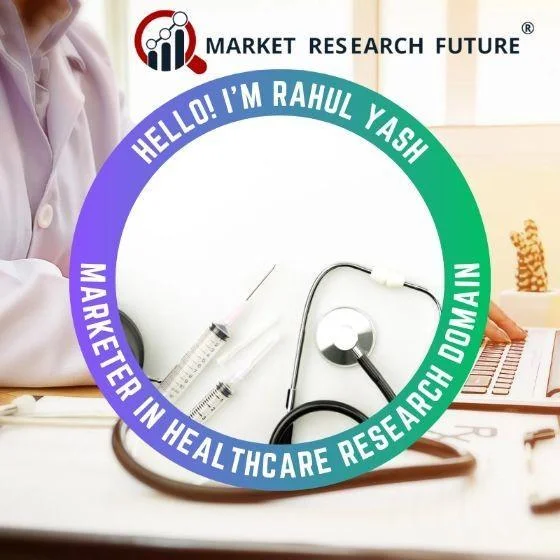Understanding the Role of Screening in Mental Well-Being
Mental health is a cornerstone of overall wellness, yet millions across the world continue to live with undiagnosed or untreated conditions such as anxiety, depression, post-traumatic stress disorder (PTSD), and bipolar disorder. Mental health screening serves as a vital tool for early detection, timely intervention, and improved outcomes.
Through structured assessments conducted in hospitals, schools, workplaces, and increasingly through digital platforms, these screenings empower individuals to seek care before mental health challenges become severe.
Global Market Growth: Rising Awareness and Demand
The global mental health screening market is expanding at a robust pace. Valued at US$0.8 billion in 2022, the market grew to US$0.9 billion in 2023 and is projected to advance at a compound annual growth rate (CAGR) of 12.2% from 2023 to 2029—reaching US$1.8 billion by the end of the forecast period.
This growth underscores a global shift toward recognizing mental health as an integral component of public health strategies and healthcare investment.
What Is Mental Health Screening?
Mental health screening involves evaluating individuals for early indicators of psychological or cognitive disorders using standardized questionnaires, interviews, or digital applications. Although screening is not a diagnostic tool, it serves as a critical first step to identify risks and guide individuals toward professional evaluation and care.
Common Screening Tools:
- PHQ-9 (Patient Health Questionnaire): Assesses depression levels.
- GAD-7 (Generalized Anxiety Disorder Test): Evaluates anxiety symptoms.
- PTSD Checklist (PCL-5): Screens for trauma-related disorders.
- Mini-Mental State Examination (MMSE): Measures cognitive function.
Used effectively, these tools not only facilitate early intervention but also help reduce stigma and encourage proactive mental health management.
Why Mental Health Screening Matters
- Early Detection for Better Outcomes
Identifying symptoms early allows for prompt treatment, reducing the risk of chronic mental illness and enhancing recovery rates. - Boosting Workplace Productivity
Many organizations are adopting mental health screening programs to combat absenteeism, burnout, and performance loss—saving billions annually through improved employee well-being. - Reducing Stigma and Promoting Awareness
Regular screenings help normalize discussions around mental health, fostering acceptance and reducing the fear of judgment or discrimination. - Enhancing Public Health Strategies
Screening data aids policymakers and healthcare providers in designing effective mental health initiatives and allocating resources efficiently.
Key Market Drivers and Emerging Trends
The growth of the mental health screening market is being shaped by technological innovation, rising mental health awareness, and global policy initiatives.
Key Drivers
- Digital Mental Health Platforms: Online tools and mobile apps make mental health screening more accessible and private than ever before.
- Rising Prevalence of Mental Disorders: According to the World Health Organization (WHO), one in eight people globally lives with a mental health condition.
- Corporate Wellness Initiatives: Employers are investing in regular screenings as part of broader wellness strategies.
- Integration into Primary Healthcare: Hospitals and clinics are increasingly embedding screening into routine check-ups.
Emerging Trends
- AI-Powered Assessments: Artificial intelligence is being used to analyze voice tone, facial expressions, and textual responses to identify psychological risks.
- Wearable Technology: Smart devices now track sleep, stress, and mood as part of comprehensive mental health monitoring.
- School-Based Screening: Early screening among children and adolescents is helping prevent long-term emotional and behavioral challenges.
- Telehealth Expansion: Remote and online assessments are ensuring mental health support reaches rural and underserved populations.
Implementing Mental Health Screening: Best Practices
For Healthcare Providers
- Incorporate mental health screening into regular patient visits.
- Train staff to interpret results with sensitivity and confidentiality.
- Use digital tools to streamline data collection and analysis.
For Employers
- Provide confidential screening options and access to mental health professionals.
- Encourage a stigma-free workplace culture through education and open dialogue.
- Include mental health assessments in wellness initiatives.
For Individuals
- Take advantage of online self-assessment tools as an initial step.
- Answer screening questions honestly to ensure accuracy.
- Follow up with a professional if results indicate risk factors.
Challenges in Mental Health Screening
Despite growing awareness, several challenges persist in implementing effective screening programs:
- Data Privacy: Ensuring confidentiality and ethical use of sensitive personal information.
- Access Inequality: Many low-income or remote populations lack access to mental health services and tools.
- Limited Awareness: Some individuals still underestimate the importance of mental health screening until symptoms become severe.
- System Integration Barriers: Resource constraints and lack of trained personnel hinder widespread implementation.
The Future of Mental Health Screening
The coming decade promises significant evolution in mental health screening, driven by data analytics, digitalization, and global collaboration.
Expect to see:
- Broader use of AI and predictive models for personalized screening experiences.
- Government-mandated screening programs in schools and workplaces.
- Integration of physical and mental health assessments into holistic wellness models.
- Expansion of services across Asia-Pacific and Latin America, supported by healthcare infrastructure advancements and awareness campaigns.
With the market poised to reach US$1.8 billion by 2029, the sector is set to redefine how societies approach mental health and well-being.
Conclusion: Screening as the Foundation for Healing
Mental health screening is no longer optional—it is an essential gateway to early intervention, healthier communities, and stronger workplaces. By embracing digital innovation, integrating screenings into everyday healthcare, and fostering mental health literacy, we can build a future where every individual has the opportunity to seek help without fear or delay.
As awareness grows and technology continues to evolve, the next decade will mark a transformative era for global mental wellness.




